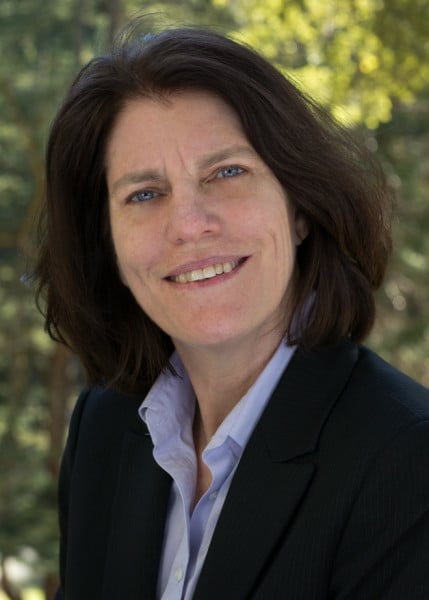Candace Thille, assistant professor of education, came to Stanford after founding an online course platform called the Open Learning Initiative at Carnegie Mellon University. Her research focuses on the applications of technology in education; Thille examines both how technology assists the learning process and the algorithms underlying the technology. The Daily sat down with Thille to discuss her interest in the growing field of “adaptive learning” and hear her thoughts on its future.
The Stanford Daily (TSD): What is adaptive learning, and can you give an example of it in practice?

Candace Thille (CT): That’s a good question as that is one of those terms that I think is overloaded at this point in time. A lot of people talk of adaptive learning, and they mean many different things. For the most part what I think people mean by adaptive learning is a technology-mediated environment in which the learner experience is adapted to their behavior.
An example of that is the GRE or SAT test. They say that those are adaptive assessments in that [based on] how you’re performing on the first few questions they make a prediction then about what level you’re performing at, and the subsequent questions you receive are based on what they believe about you from the first questions that you answered.
Another good example [is] cognitive tutors, which are pieces of educational software that sort of act like what we would hope a good human tutor would act like. When you’re trying to answer an algebra question, for example, and you get stuck, you can ask for a hint. And based on the hint you ask for and the answer you provide, you get context-specific feedback.
TSD: It seems like adaptive learning is only meant to supplement classroom teaching — or can it also be used to replace it?
CT: It gets used along the continuum. Some people are creating software that is intended to support an independent learner without a human teacher. Other pieces of software are designed to supplement what’s happening in an instruction, and still others are intended to both supplement what’s happening in class and also give the instructor information about what’s happening with the student.
TSD: Do teachers feel like they benefit from adaptive learning environments?
CT: It varies a lot by the subject, by the product and by the teacher. In the best of all worlds, I like to think of these adaptive environments as a really good TA. Because what do we want our TA’s to do? When students are trying to do their homework on their own and are struggling, they can come ask the TA for help.
One thing a really good TA does is support learners while they’re in the problem-solving process. The other thing a really good TA does is… if they’re noticing that the same kind of question or confusion is coming up over and over again, then they tell me before class, “People are really struggling with the central limit theorem.” So then it’s like ‘Great, let me focus on that in class.’ So in the best of all worlds these environments can act by both helping the students and giving the instructor really good information on where to focus their time and energy in class.
TSD: Does it seem like learning environments are headed to this best of all possible worlds?
CT: These adaptive learning systems are going to become a core part of the teaching process in higher education. I don’t think that’s a question anymore. They are. Maybe not so much at places like Stanford but in much of higher education, because of the pressures to contain cost and serve a much larger number of students and move students through more quickly.
I’m really concerned about the degree to which institutions of higher education are outsourcing the design of [adaptive learning systems] to the commercial sector, because one of the core tenets of a business is you do not outsource your core business process. So if you agree that these are going to be a core part of the teaching and learning process, then we would say do not outsource them.
There’s also a pedagogical reason for not outsourcing them… It’s still active research. If we keep it in higher education, we have two benefits. One of them is… where the research is happening the teaching is also happening. The other is the idea of how innovation will happen. There’s the idea [that] we need disruption — I don’t agree with that perspective because we need really good research right now. It’s not like we know how to do this. It isn’t at a place to be commodified yet, so the pressure becomes to grow users. Even if [businesses] have an innovative idea, it’ll quickly be driven to satisfying the market.
Contact Regan Pecjak at reganp ‘at’ stanford.edu.
